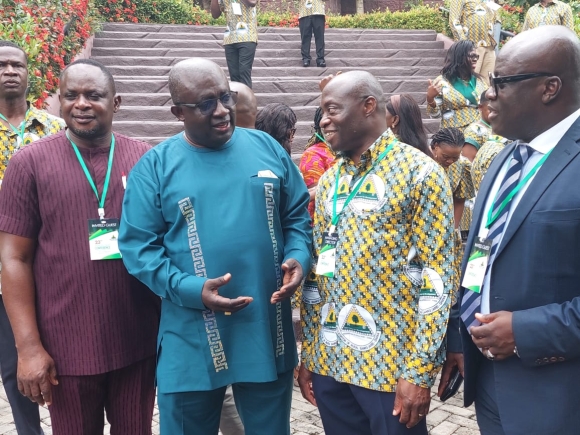Rural and Community Banks Urged to Embrace Digitalisation for National Financial Inclusion

The 2nd Deputy Governor of the Bank of Ghana, Elsie Addo Awadzi, has called on Rural and Community Banks (RCBs) to leverage technology and digitalisation in their operations to strengthen their position in Ghana’s national financial inclusion agenda. Speaking at the 23rd Annual CEOs Conference of RCBs in Ho, Volta Region, Ms. Awadzi highlighted the critical role that digital transformation plays in expanding financial access to underserved rural communities.
Citing data from the Bank of Ghana’s 2023 FinTech Sector Report, she noted that mobile money accounts have surged beyond 65 million, with transaction values exceeding GH¢1.9 trillion. “To position rural banking at the center of the national financial inclusion agenda, RCBs must adopt technology and digitalisation in their operations,” she urged.
Ms. Awadzi underscored that integrating mobile banking and digital solutions into RCB services would enhance accessibility, quality, and the overall usage of their offerings. She pointed to initiatives such as GhanaPay, which enables RCBs to offer mobile wallets and digital payments, as critical tools for innovation. “RCBs must capitalise on this and foster partnerships with FinTech companies through the ARB Apex Bank to drive further innovation,” she added.
Despite their wide reach, with 147 RCBs operating 850 outlets across Ghana, RCBs still face challenges, particularly in addressing gender disparities in financial access. Ms. Awadzi referenced the Findex 2021 Report, which indicates that women are 10% less likely to own mobile phones than men, hindering their access to mobile money services. “This gender gap presents a challenge that RCBs must address by designing products that specifically target women and underserved populations,” she said.
She also urged RCBs to go beyond offering generic financial products and instead tailor their services to the unique needs of rural communities, particularly farmers, small-scale traders, women, and persons with disabilities. “By designing customised financial solutions that align with local income cycles, RCBs can build stronger trust and connections with their clientele,” she stated, emphasizing the need for RCBs to remain focused on the unbanked rural population rather than competing with urban-based commercial banks.
In support of Ms. Awadzi’s vision, Managing Director of ARB Apex Bank, Alex Kwasi Awuah, stressed that the future of rural banking lies in digital transformation. He highlighted the successful launch of the Financial Sector Development Project (FSDP), sponsored by the Government of Ghana and the World Bank, which has led to the operationalisation of digital banking platforms for the rural banking sector.
“Our USSD code *992# allows customers to perform various banking transactions, including fund transfers, bill payments, and account management, from their mobile phones,” Mr. Awuah announced. He further disclosed that the pilot phase of this platform has already enrolled over 81,000 RCB customers, recording over 694,000 transactions valued at GH¢323 million.
Ms. Awadzi’s call for digitalisation and tailored financial solutions marks a critical step toward ensuring that RCBs remain at the forefront of financial inclusion, driving rural economic growth and bridging gaps in access to financial services, particularly for underserved populations.



